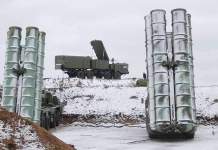Pakistan has prompted Afghan President Ashraf Ghani to show some flexibility towards the peace process with the Taliban and adhere to the prisoner-swap agreement which was signed between the US and Taliban in Doha recently.
Attack on Amarnath Yatra Justifies the Fear of Pilgrims and Kashmiri Pandits
Within hours of the US-Taliban peace agreement, President Ghani told reporters that his administration had given no commitment to release 5,000 Taliban prisoners. Ghani’s reluctance provoked the Taliban to say that they would not join the intra-Afghan dialogue until the 5,000 prisoners are released.
The foreign minister said the swap of prisoners was part of the deal signed by the Taliban and the United States. He added President Ghani should seek clarification (on prisoner swap) from Washington.
“Release of prisoners will not be unilateral but bilateral,” he said, referring to the US-Taliban agreement under which insurgents would also free 1,000 Afghan security personnel from their custody. “Such goodwill gestures are important when one moves from the war to peace,” the foreign minister said, emphasising that this occasion for seeking a peaceful end to the decades-old war in Afghanistan should not be missed.
Qureshi said the US-Taliban deal was the first step while maintaining that the peace process would not be easy. “The responsibility rests with the Afghan leadership to create a conducive environment for the dialogue to move forward.”
Donald Trump Praises Pakistan; Promises India An Important Role In The Region
He cautioned that people of Afghanistan would suffer the most if the current process did not succeed. “War is not a solution to any problem,” Qureshi added. Qureshi said Pakistan had played its part and would continue to assist Afghanistan and other players for peace. He added Pakistan’s positive role had been acknowledged by everyone.
Afganistan has long been accusing Pakistan of sponsoring, harbouring and training the Taliban who have wreaked havoc in the region. President Ghani rebuffed Qureshi and said. “The Government of the Islamic Republic of Afghanistan strongly condemned the recent remarks made by Pakistan’s Foreign Minister Shah Mehmood Qureshi on the domestic affairs of Afghanistan,” said a statement issued by the Afghan foreign ministry.
Russia, Turkey On The Verge Of Full Scale War As Both Putin, Erdogan Refuse To Budge
The statement urged Pakistan to refrain from what it called making “such irresponsible statements regarding the internal affairs of Afghanistan”, adding: “Such statements can only lead to creating an environment of distrust and cannot be effective in enhancing the relationship between the two countries.”
Experts from Pakistan who contribute for the EurAsian Times stated that Ghani’s unwillingness to abide by the US-Taliban peace deal may show his displeasure since he may not have any major role in the new government and his key-ally, India, does not want the Taliban to come to power at any cost.
Pakistan has always seen Indian engagement in Afghanistan with suspicion and as part of a meticulously choreographed strategic manoeuvre aimed at surrounding Pakistan. Experts stated that the deep-rooted suspicion in the region stems from Pakistan’s longstanding backing for the Taliban and other militant outfits as means for strategic depth in Afghanistan and the Kashmir valley.
Attack on Amarnath Yatra Justifies the Fear of Pilgrims and Kashmiri Pandits
Experts stated – “Many of the Taliban leaders have travelled to the UAE, Saudi, Qatar etc on Pakistani travel documents and are vehemently backed by the notorious Pakistan Army and the ISI, as is the case with the Jaish-e-Mohammad and Lashkar-e-Taiba that have trails in Afghanistan as well.”
Indians are especially haunted by the memories of the 1999 hijacking of an Indian Airlines flight from Nepal to Afghanistan that was aimed at the release of many militants, including the founder of JeM, Masood Azhar.





